
CV Photo: To Add or Not to Add?

What’s the best way to put a face to your CV? Taken literally, adding a headshot is certainly one way to do it—while setting yourself apart from other job seekers. But the real question is whether a CV photo makes you stand out in a positive or negative way. The answer depends on a few factors.
Why you should include a photo:
- It will help build your brand.
- It’s beneficial for some global job seekers.
- Hiring managers are drawn to images.
Why you shouldn’t include a photo:
- It’s potentially unprofessional.
- You might risk discrimination.
- Space is limited.
Browse our gallery of resume examples here.
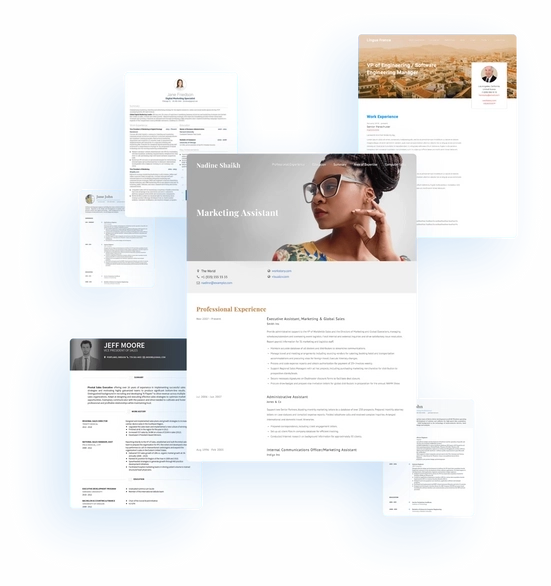
The case for adding a CV photograph
1. It will help build your brand.
Your industry influences whether to include a professional picture on your CV. Creative fields like design, fashion, or film often allow more personal expression, making photos more common. For other professions, a CV photo can aid personal branding and build trust, especially if it's consistent with LinkedIn and social media profiles. Photos also establish credibility, much like headshots for authors in publications like The Washington Post or Forbes.
Browse our gallery of resume templates here.
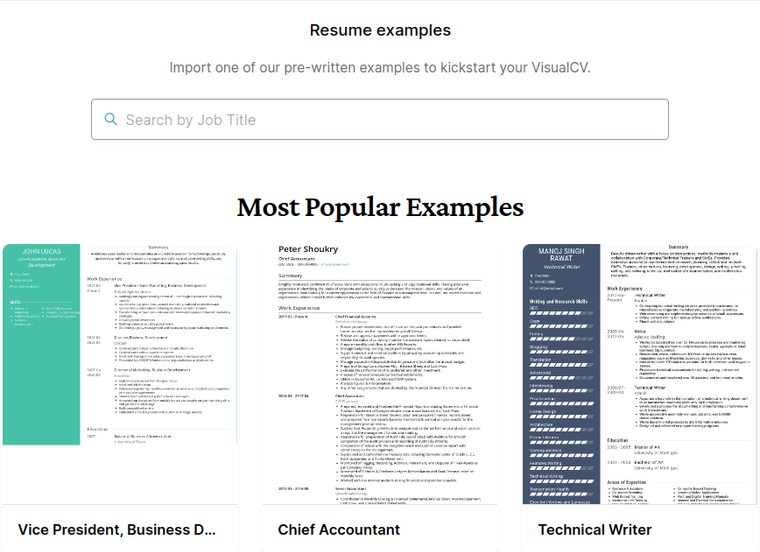
2. Global job seekers can benefit.
In the U.S., recruiters usually avoid CVs with photos, but in many European countries, like Germany and France, as well as in the Middle East, it's often expected. Whether to include a photo depends on the particular country where you're applying. U.S. job seekers looking abroad should consider adapting cv to foreign market expectations.
3. People are drawn to images.
In today’s visually driven world, adding a headshot to your CV can help capture a hiring manager’s attention, potentially increasing your chances for an interview.
The case against adding a photo
1. It’s potentially unprofessional.
In the U.S., a photo never belongs on a CV—except for roles like modeling or acting, where a headshot is essential. Since appearance isn’t relevant to most jobs, including a photo can seem naive and unprofessional.
2. You risk potential discrimination.
Including a profile photo on your CV can risk potential discrimination, especially in countries with strict anti-discrimination laws like the U.S. Employers avoid photos to prevent bias based on age, race, gender, or other protected characteristics. Government jobs are particularly cautious, as profile photos can disqualify candidates during initial screenings.
Instead, use a professional profile photo on your LinkedIn and include the URL on your CV. Recruiters often check social media, so ensure your profiles are professional. Also, be mindful of CV space—use it to highlight your skills and experience rather than a profile photo.
How to Take a Photo for Your CV
When taking a photo for your CV, use a high-quality camera or a smartphone with a good camera. Ensure proper posture, maintain a neutral expression, and stand against a neutral background, such as white or light-colored..
What is the Right Size of a Photo on Resume
A photo for a CV on A4 paper should typically be 2x2 inches or smaller, similar to a passport photo. Anything larger may overlap with other content on your CV.
What Photo Should I Put on my CV?
A professionally taken, properly illuminated photo where the attire is either professional or business casual can be added to your CV. Depending on the resume format, you can either put a square CV photo or a circular CV photo.
What to Wear in a CV Photo
Follow these tips for a professional CV photo:
-
Wear professional attire.
-
Opt for neutral colors like black or gray; avoid high-contrast clothing.
-
Ensure you're well-groomed.
-
Maintain a confident posture to complement your professional appearance.
Does a German CV Need a Photo?
While not mandatory, including a photo on a German CV can help you stand out. Unlike in North America, German employers often expect one.
Should I Include a Photo on My CV for New Zealand?
Including a photo on your New Zealand CV is acceptable and won't hurt your chances. Ensure the photo is professional and taken in good lighting.
Should I Put a Photo on My CV for the Netherlands?
Adding a photo to your CV is recommended when applying for jobs in the Netherlands. It helps make your application more memorable to employers.
How Do You Make a Photo CV?
To create a photo CV, sign up for VisualCV and upload your profile photo to the CV template in a few easy steps.
The Role of Unconscious Bias in CV Photos
Including a photo on your CV can unintentionally trigger unconscious bias. Even when employers strive for objectivity, visual cues like gender, age, or ethnicity can influence their perception. This is especially significant in regions with strict anti-discrimination laws, where avoiding photos helps maintain fairness in the hiring process.
When to Include a Photo: A Global Perspective
Understanding common practice in different countries is crucial. While photos are expected in places like the Middle East and certain European nations, they are generally avoided in the U.K. and U.S. Research the job application process in your target country to align with local expectations and maximize your chances.
The Impact of Social Media and Online Presence
In today’s digital age, your online presence can be just as important as your CV. Social media platforms like LinkedIn often serve as extensions of your CV. Including a profile photo on your LinkedIn profile ensures consistency and professionalism. Prospective employers are likely to check your LinkedIn profile, making it crucial to maintain a polished and professional image.
Tailoring Your CV for Different Industries
Different industries have varying norms for CV photos. While conservative fields like finance or healthcare prefer traditional formats without photos, creative sectors embrace more personal expression. Aligning your CV with the expectations of your potential employer can enhance your chances. In some cases, adding a photo might even reflect positively on your career journey.
Tips for a Professional CV Photo
- Professional photographer: Hiring a professional photographer can ensure your CV photo meets high standards.
- Dress appropriately: Choose attire that matches your industry—be it business casual or more formal.
- Neutral background: A clean, neutral background focuses attention on you, avoiding distractions.
Alternatives to Including a Photo on Your CV
If you're concerned about adding a photo, consider directing employers to your LinkedIn profile or social media platforms where they can view your professional profile picture. This allows you to maintain a polished online presence without risking potential discrimination on your CV.
Easiest way to add a photo to your CV
Want to save time? VisualCV.com has some creative solutions that are at your disposal. You can create a customizable resume with a photo using our free Slate template—or sign up for a VisualCV Pro account to gain access to our Brooklyn template, Gallant template, or Air template.
The Slate template offers a simple and efficient two-column structure that’s a good fit for experienced professionals and new job seekers alike.
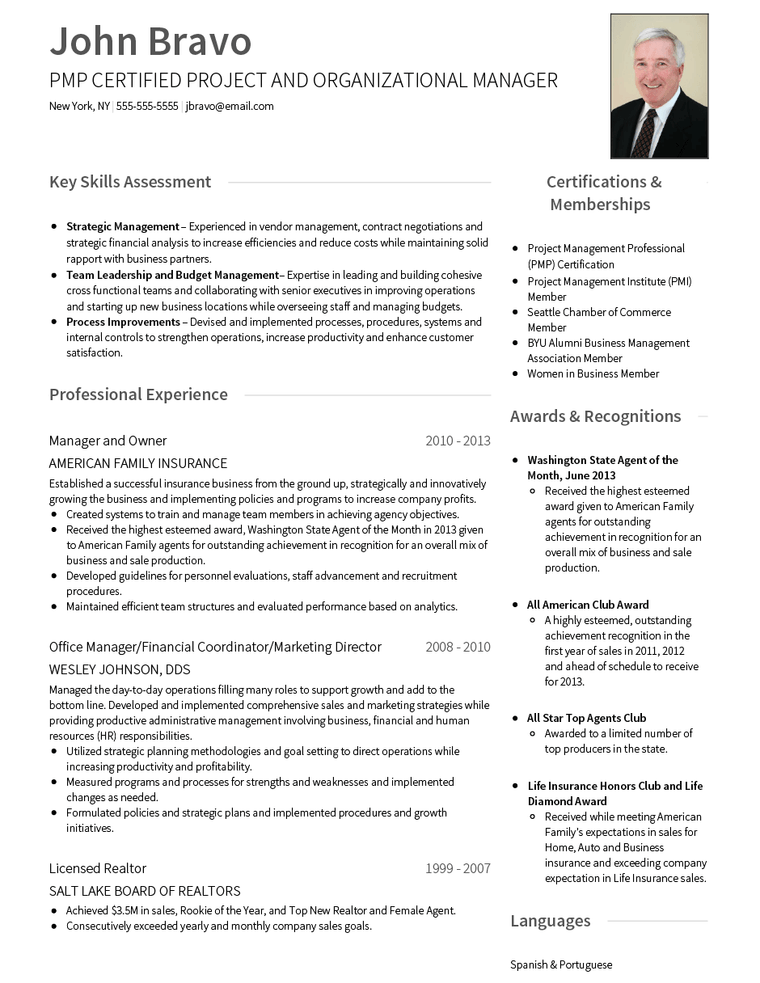
The Brooklyn template showcases skills and experience simply and professionally—and uses a dignified black-and-white header for a modern twist:
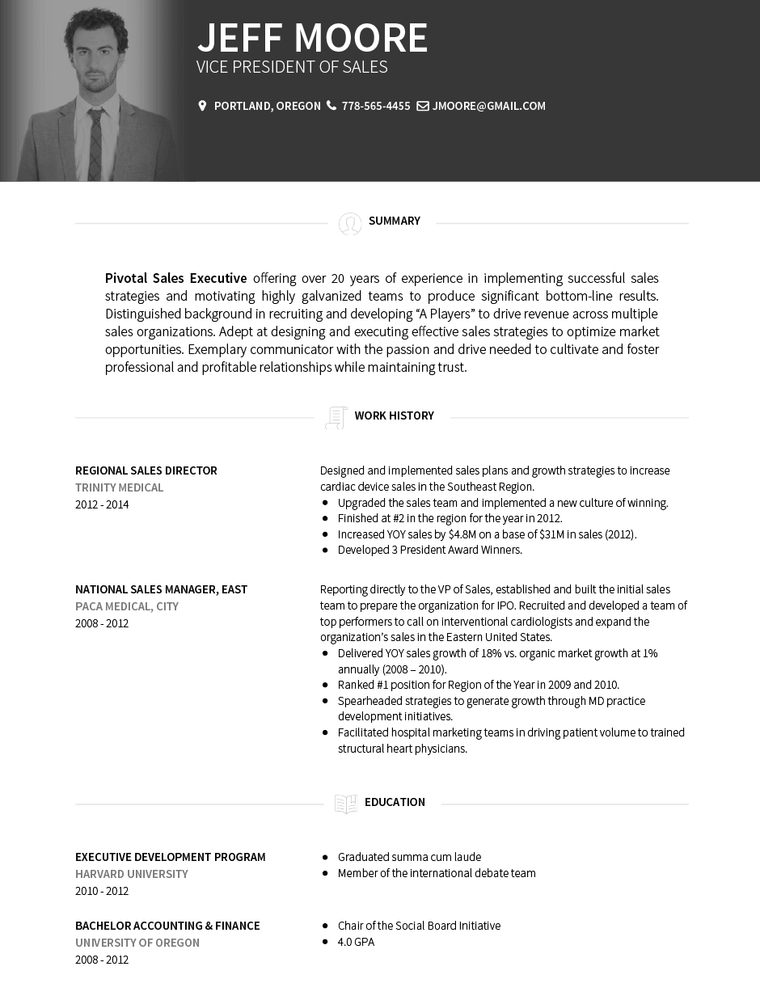
Prefer a splash of color? The Gallant template is a modern, professional template with a full column of customizable color, where you can highlight your skills and expertise:
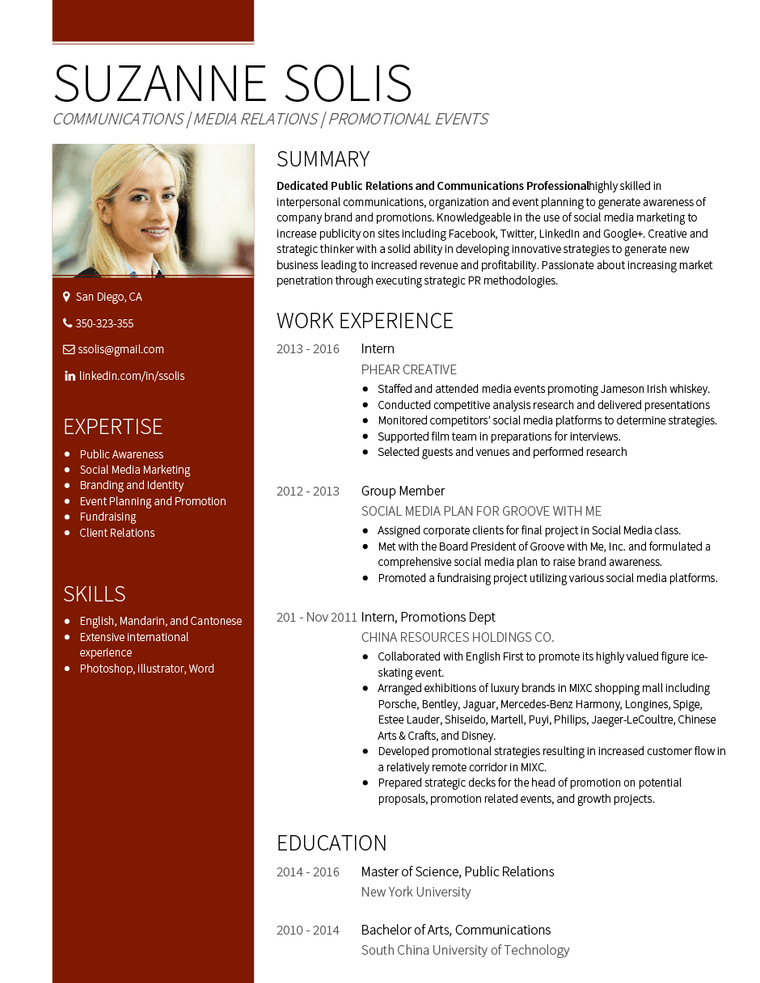
Finally, the Air has a two-tone theme and timeline-like structure that lends itself well to showcasing your experience chronologically:
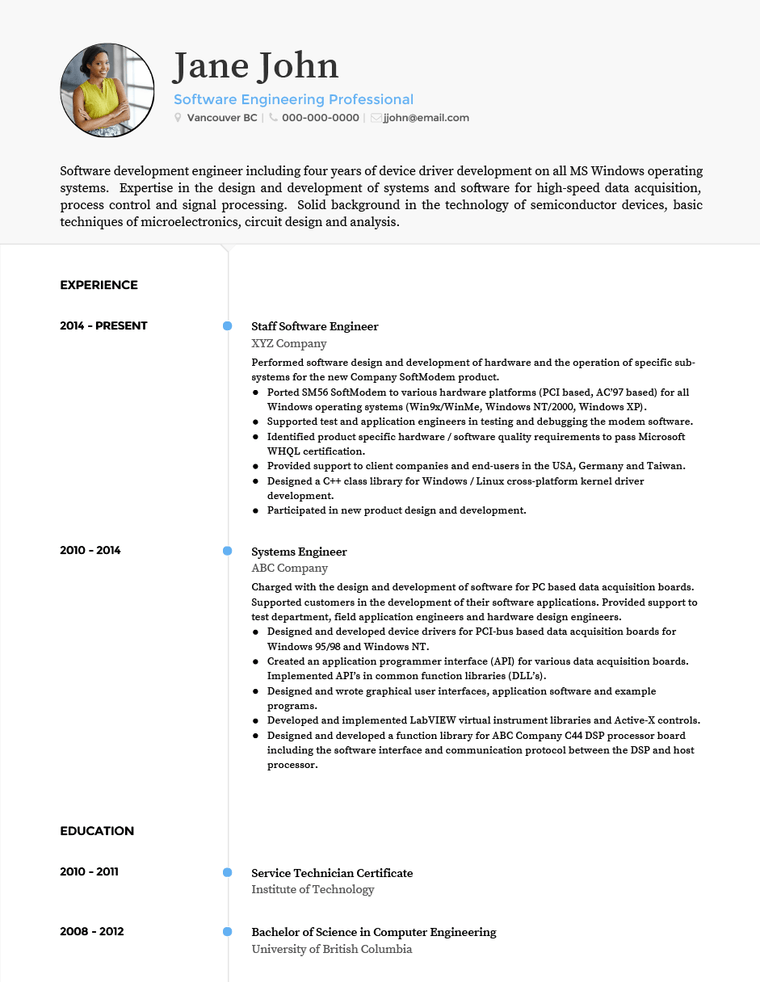
You can effortlessly place the photo somewhere in the top third of the page, like this sample CV.
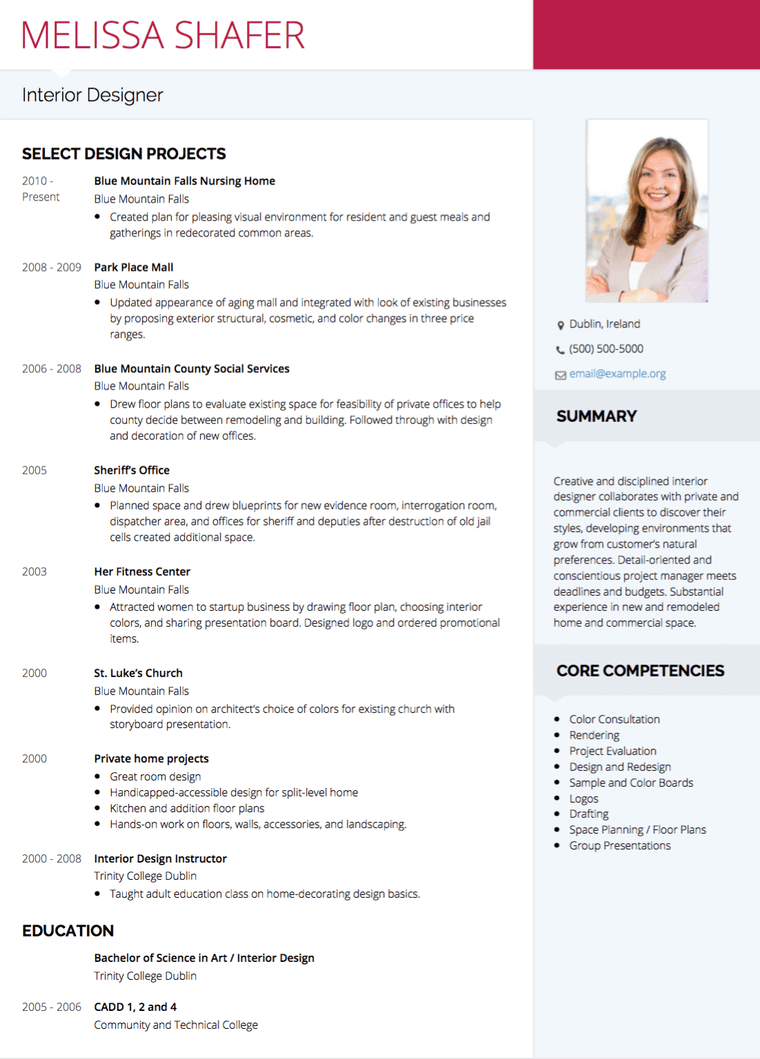
The verdict
The last thing you want your CV to read is “unprofessional.” Translation: if you’re looking for work in a conservative field like information technology, health care, or finance, it’s probably best to not add a photo to your CV. However, if you’re job hunting in a creative industry—or searching for work in a country where resume photos are common custom—including a photo on your resume can be an effective way to make your job application stand out.
Whether you should include a photo on your CV will also depend on where you are job searching, so spend time learning about the expectations within the countries you’re applying to jobs in. The prospective employer’s company culture can impact this decision as well. Therefore, do your homework on the organization before submitting your job application.
In fact, it may make sense to have two CVs ready—one that includes a headshot and one that doesn’t. That way you have the option to submit whichever resume you feel is most appropriate.
- The case for adding a CV photograph
- The case against adding a photo
- How to Take a Photo for Your CV
- What is the Right Size of a Photo on Resume
- What Photo Should I Put on my CV?
- What to Wear in a CV Photo
- Does a German CV Need a Photo?
- Should I Include a Photo on My CV for New Zealand?
- Should I Put a Photo on My CV for the Netherlands?
- How Do You Make a Photo CV?
- The Role of Unconscious Bias in CV Photos
- When to Include a Photo: A Global Perspective
- The Impact of Social Media and Online Presence
- Tailoring Your CV for Different Industries
- Tips for a Professional CV Photo
- Alternatives to Including a Photo on Your CV
- The verdict

Written By
James Clift
Co-Founder & Director
James is an entrepreneur and the Co-Founder of VisualCV. He has spent the last 10 years building businesses, from window cleaning to software. His passion is helping individuals create the careers they want.

The top hiring and human resource statistics for 2025, including data on AI resumes, job interviews, remote work, and recruiting.
January 1, 2025
Read Post

Community Success Manager & CV Writing Expert

Learn how your resume can beat the applicant tracking system (ATS) with keywords and the right resume template.
February 7, 2022
Read Post

Community Success Manager & CV Writing Expert

A guide to what personal information to include in your CV, no matter where you are applying for a job.
June 16, 2020
Read Post

Co-Founder & Director
Copyright ©2025 Workstory Inc.